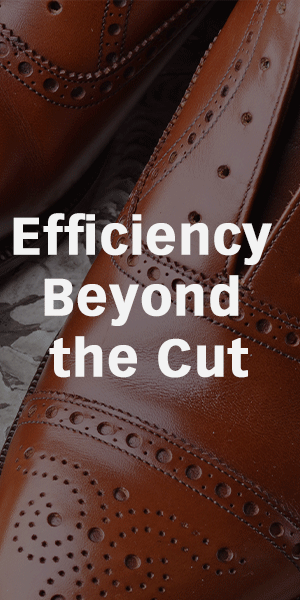Back to business

Founder of Brazilian footwear group Beira Rio, Roberto Argenta, ran for election as governor of the state of Rio Grande do Sul in October. His bid to hold high office fell short, meaning he can turn his attention once again to business.
Footwear business leader Roberto Argenta had enjoyed an exciting and successful three-and-half decades in the industry in Brazil before deciding to change tack and run for office as governor of his home state, Rio Grande do Sul, in the 2022 elections. He had been involved in local politics for some time, but state governor – a position of great prestige and importance, bringing with it executive power for a four-year term, a cabinet of ministers to set up and run, an electoral programme to implement, an official residence and a long list of formal events to attend – would have been a big step up.
In the end, though, Mr Argenta came fifth out of ten candidates in the first round of voting on October 2 and did not progress to the second round. He can, therefore, turn his attentions once again to businesses, including the footwear group he set up in 1975, Calçados Beira Rio.
He established Beira Rio in the city of Igrejinha, just to the north of Novo Hamburgo, with a staff of 18 and a production capacity of 150 pairs of shoes per day. The group now employs 10,000 people directly in its factories, supports a further 15,000 jobs indirectly and says it is on course for reaching the milestone figure of a turnover of more than R$5 billion this year, equivalent at current exchange rates to more than $950 million.
It estimates that it will produce close to 120 million pairs in 2022 and ships its shoes under eight different brand names to almost 100 countries around the world. Its brands are Beira Rio Conforto, Moleca, Vizzano, Molekinha, Molekinho, Modare Ultraconforto, Actvitta e BR Sport.
Affordable beauty
The group declares its mission to be to offer “beauty for feet through quality products with a high level of design”. According to export manager Michele Ponath, another strand to this strategy is that Beira Rio shoes should also be affordable for most consumers and she gives this as a reason for its preference for using synthetic materials and textiles rather than leather in its collections.
She explains that the processes the group has put in place at the 11 production facilities it now has (all of them in Rio Grande do Sul) are intended “to respect the principles of nature”. Its commitments range from engineering plentiful natural light into its buildings, to finding ways to use and reuse leftover materials and collecting and using rainwater. In 2021, it achieved certification at ‘diamond level’ for its footwear products under a programme called ‘Sustainable Origin’. This is an initiative that national footwear industry bodies Abicalçados and Assintecal launched in 2013, based on work that researchers at the University of São Paulo had carried out. Diamond is the highest level companies can achieve. “Consumers like this,” Ms Ponath explains. “They like seeing the ‘Sustainable Origin’ label on shoes; it makes them want to find out more about the programme and about brands that have engaged with it.”
She goes on to say that the group has urged its suppliers to take part in the programme and points out that three, so far, have achieved ‘Sustainable Origin’ certification while a further 37 companies are preparing to embark on the same path.
People power
People development is another aspect of the business that she talks about with pride. She points out that she herself arrived at Beira Rio as a student seeking work experience and has worked her way up to a senior position. Its people are also involved personally in taking forward the group’s sustainability commitments. “We have a sustainability committee that meets every month,” the export manager continues, “to discuss new ideas and ways of putting them into practice. An example of what has come out of that is that we no longer have plastic cups on site. Everyone has their own washable cup or mug to drink out of.”
She attributes to founder, Roberto Argenta, an internal improvement programme called, no less, ‘Moving Towards Perfection’. “We talk about this every day,” she explains. “It is a method that involves thinking each day that today I performed better than I did yesterday, and tomorrow I will perform better than I did today. We strive to do better and try to put in place what we need to improve.”
There are monthly meetings to work on all of this too, involving forthright feedback sessions on what has gone well and what still needs work. The emphasis is on moving forward.
Colour palette. Calçados Beira Rio says its aim is to provide “beauty for feet”.
Credit: BEIRA RIO CONFORTO












